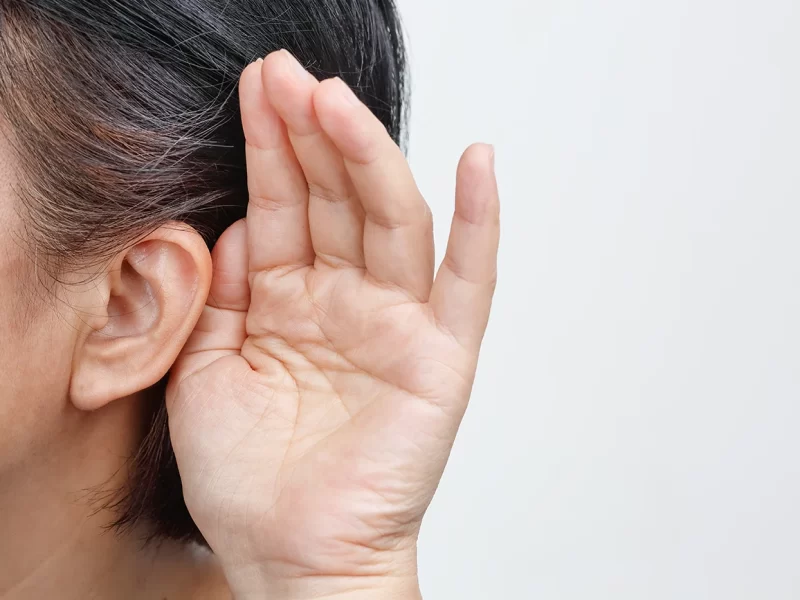
Introduction
Hearing loss is increasingly rampant in contemporary society. Hearing loss with age or noise exposure for long periods is common in many individuals. Misconceptions about hearing loss and hearing aids are still rampant. These misconceptions, apart from hindering treatment, can also affect an individual’s quality of life. This article will discuss some prevailing misconceptions in an attempt to enable people to view hearing loss in a scientific manner as well as utilize hearing aids to enhance their quality of life.
Myth 1: Hearing loss is limited to the elderly
Hearing loss is perceived to be a condition that only affects the elderly, but this is false. The World Health Organization (WHO) states that approximately 466 million individuals worldwide have some type of hearing loss, and the majority of those are in the age range of 20-40. Young people also experience early hearing loss from long-term use of headphones, loud music playing, or constant exposure to noise in the workplace.
For example, a survey of young city residents revealed that over 30% of them are subjected to intense noise in the workplace or in recreational areas and are thus at risk of developing mild to moderate hearing loss. The remedy lies in timely hearing tests. Mild hearing loss, even if neglected, can gradually impact communication, learning, and work efficiency. Hearing tests and protection, therefore, should become a standard for all, regardless of age.
Myth 2: Those who have hearing loss don’t need hearing aids
The second myth is that only the severely hearing impaired need hearing aids. But hearing aids are not only indicated for the severely hearing impaired, but also for the mild or moderately hearing impaired. Hearing aids can provide amplification of sounds and the ability to understand speech, thereby making day-to-day conversation and overall quality of life easier.
For example, a 35-year-old clerk with slight hearing loss had trouble listening to her coworkers during meetings. With the use of hearing aids, she became more effective at work and her social communication easier. Statistics show that wearing hearing aids at an early level can decrease the impact of hearing loss on cognitive function. The use of hearing aids is not a weakness; it is a scientific and effective way to protect and restore hearing.
Myth 3: Hearing aids are cumbersome and inconvenient
It is assumed by most that hearing aids are “cumbersome and hard to use,” especially apprehensive about how they would affect appearance or be a hassle. However, hearing aid technology has evolved significantly. From tiny in-the-ear devices to smart noise-cancelling behind-the-ear devices, all are comfortable and gorgeous.
Take digital hearing aids, for example. They yield advantages like automatic volume control, Bluetooth support, and noise cancellation, allowing them to respond intelligently to various settings. Users don’t need constant manual adjustments, and the experience of wearing is closer to natural hearing. For example, an older user commented, “I figured my hearing aids would be apparent, but once I wore them, I barely noticed them, and the increase in hearing was quite apparent.” So, choosing the right model and receiving appropriate fitting are critical.
Myth 4: Hearing aids can lead to increased hearing reliance
Others worry that long-term use of hearing aids will make the ears “lazy” and result in more hearing loss. This is not a scientifically based concern. Hearing loss itself is a result of degeneration of the auditory organs or nerves, and hearing aids simply amplify sound and allow the brain to continue with normal auditory stimulation.
Research shows that the early use of hearing aids not only does not accelerate hearing loss, but also decreases the mental effort involved in hearing loss. Those who use hearing aids for a long time are superior in social communication, language comprehension, and mental well-being. Hearing aids are even utilized to train ears by stimulating the auditory nerves and avoiding additional loss of hearing.
Myth 5: Hearing loss is inevitable
Most individuals feel that hearing loss is totally beyond control, but the truth is that there are scientifically established methods to slow or prevent hearing loss effectively. The most crucial actions are:
Manage noise exposure
Wear earplugs or select low-volume equipment in noisy places.
Regular hearing screenings
For those who stay or work in noisy surroundings, have a hearing screening every year.
Healthy living
Maintaining cardiovascular health in good condition, a good diet, and exercise improves blood supply to the cochlea.
Prevent ear infection
Treat otitis media early to prevent hearing loss.
For example, employees in factories who continuously wear earplugs in occupational noise protection are virtually 50% less likely to acquire hearing loss compared to their counterparts without earplugs. Hearing loss is successfully avoided and delayed through apt scientific control of living and working environments.
Conclusion
Overall, there are many misconceptions surrounding hearing loss and hearing aids, such as that hearing loss only occurs in the elderly, that mild hearing problems don’t require hearing aids, that hearing aids are bulky, that wearing hearing aids can lead to dependency, and that hearing loss cannot be prevented. Understanding these misconceptions will help us take scientific measures to protect our hearing and improve our quality of life. Urgent use of hearing aids, regular hearing tests, and a healthy lifestyle are crucial in managing hearing loss.
About ELHearing
ELHearing is a professional hearing aid factory that produces high-quality, customized hearing aid wholesale. We are committed to producing hearing aids suitable for modern life, from the small and comfortable to the smart noise reduction ones, to meet the hearing needs of different people. At the same time, ELHearing provides customers with professional consultation, debugging and after-sales services to help each user restore clear hearing and raise the working and living quality.
